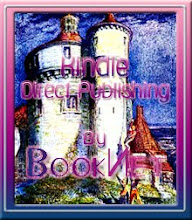Music > History & Criticism
Description
by Ernest FordPREFACE
This book is not, in any sense, technical.
It is an attempt to give a simple and rational, though in a volume of this size, necessarily incomplete, account of events that have led to the complex state of music existing in England at the present time.
Should it offer nothing to the musician or historian, I hope it will be found of interest to the general reader.
The desire to make each chapter as complete, on the subject with which it deals, as space would permit, has necessitated a certain amount of repetition, but I trust that the object will condone the fault.
THE AUTHOR.
CHAPTER I
MUSIC BEFORE AND DURING THE REFORMATION
England at one time musical and "merrie"—England before the Reformation—Out-door life—Natural dramatic instincts—Isolation of country districts in early days—Performances of itinerant minstrels—Ban of the Church—Gradual improvement—Effect of the wars of the Roses—Early perfection of sacred music—Difficult times after repudiation of Rome by Henry VIII.—His policy and that of Queen Elizabeth—Edward VI. and his sisters—Popular anger against the monks—Dissolution of monasteries natural result amongst uneducated people—Tallis entrusted to write music for reformed services—Orlando Gibbons and Henry Purcell—Early secular music—Old-time music occasionally traceable now in country districts—Ancient instruments—Effect on English music by those returning from the Crusades—Effect on criminal population—The status of the musical composer compared with that of the "musician"—Conclusion.
England was musical—once upon a time.
At least, if it be not too great a strain on our credulity, we must believe so.
England was "merrie"—once upon a time. At least, we read so.
It must have been long ago, and the art long lost.
And yet there was, undoubtedly, a time when England was both musical and "merrie." Yes. When music and "dauncing" were as essential to the life of the people as ranting and canting apparently became in those dismal days after the Reformation, when the spirit of Calvinism stalked abroad, strangling all the rational joys of life. Yes. Those were, indeed, the merrie days of England.
The pageants and plays, which arrived at such a pitch of splendour and magnificence in the reign of Queen Elizabeth, were but the successors of more primitive ones whose history is lost in the long and silent past.
It is, however, quite clear that, like nearly everything else of healthy vitality, we must look to the Church, if not for their origin, at least for the shape and form they came to assume during the Christian era.
Throughout human history there have ever been men gifted with a dramatic temperament who, through sheer natural instinct, not only dramatise their own experiences when they would relate them, but dramatise with equal avidity, any material which may come to their hands for the entertainment of others and the relief of their own exuberant vitality.
A combination of such gifted, congenial spirits would be, not so much probable as inevitable. Hence the bodies of strolling players, regarded by the guardians of the law, doubtless with much excuse, as rogues and vagabonds, who toured the country districts, and were to all appearance, in a state of constant conflict with the "Dogberrys" of the day.
It is difficult, if not impossible, for us to realise the isolation of small communities in mediæval times, but it is not difficult to imagine the excitement that a visit from one of these troupes would arouse; not only on account of the amusement they would afford, but for the news they would bring of that outside world which was, probably, at once a source of curiosity and dread.







 "
"






 3:40 PM
3:40 PM
 BookNet
BookNet


 Posted in:
Posted in: 












0 ความคิดเห็น:
Post a Comment